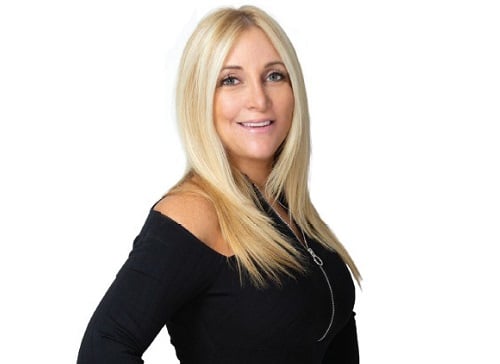She closed $160 million with the help of her village

It takes a village to close a loan, says Lauren Maxwell, branch manager of the Maxwell Mortgage Team. Being a successful originator is extremely difficult without great support, and that’s what she tells anyone getting into the business.
“Get yourself involved with a strong company. Do your research on the company and know it’s not just about your basis points, but about the support you’ll also have in the background. It’s so huge.”
She learned that lesson firsthand, when she was recruited by a bank and left American Eagle Mortgage. Within days, she found herself dealing with “the worst experience of all my originating life.”
Maxwell said that the bank would leave clients at the closing table, trying to get verbals done the same day as closing, and other “crazy stuff.” She stayed with the bank for a mere 34 days before deciding she’d had enough, and decided to open the Maxwell Mortgage team with Cross Country Mortgage.
She picked Cross Country because they have a single owner, she was given complete autonomy, and she was impressed with their pricing and automation. She found the right village with “phenomenal” support, and things are looking up again.
“It takes a village. You have to have good people surrounding you, from openers to processors, to underwriters, to closers. And then you have to have support from the top that knows production is really important. So when you do the tough deals, you all have to work as a team to make it go through, and a lot of companies don’t do that. It’s black and white. We don’t do black and white here,” Maxwell said.
Maxwell’s experience with the bank was really just a small bump in the road of an illustrious career. She’s been in the mortgage business for 31 years, closed $160 million in volume 2017, and her goal for 2018 is to close 600 loans (although she’ll be happy with 500). Scotsman Guide declared her the #1 originator in the country for FHA loans and #4 for USDA loans, and she really loves working with first-time home buyers, particularly teachers, firefighters, and police officers. Regardless of what the market does, she sticks to her target clients.
“I think it just depends upon each person, what kind of business they go after,” she said. “I love helping people with low credit, I love helping people who don’t have a lot of money, and I love doing the government loans.”
Closing speed is a source of pride for most originators, but speed isn’t everything. Originators often stumble over themselves when rushing through files, and when details are missed, speed is meaningless.
“Pay attention. [There are] wonderful, wonderful people who work for me except that they don’t freaking pay attention. So I can do 10 times more than them because they’re just rushing through it. Taking that extra five to 10 minutes and know what you’re inputting, know what you’re giving to a client, know what you’re giving to a processor so that you can get a loan closed in two weeks versus just throwing crap in a file.”
Paying attention extends to industry happenings and guideline changes, which is where great originators stand head and shoulders above the rest. When defining success, it can’t always be about the rewards, but about getting involved and putting in the time. With origination, it’s often easier than it looks from the outside, and Maxwell says it’s hard to be successful and get loans closed properly when someone is just concerned about taking in business.
“I don’t want to say it’s not about the money, but that’s not what I think about when I’m doing loans. And I think so many people are just looking at that next paycheck and they make 10 or 20 grand and then they go on vacation for a month,” she said. “These are people’s livelihoods and dreams that we have in our hand and our control. We have to take it a little more seriously than it’s taken.”
People—clients and partners alike—like Maxwell’s upfront attitude. Rather than operating from a defensive standpoint, Maxwell says that originators have to set the tone and expectations at the start of the process so clients will know what to expect going forward. That means letting clients know what they need to submit for the process, and sharing timelines with them so they can hold up their end of the bargain.
“Be in charge of your transactions, set your standards up front, instead of them saying, ‘well, I’ll get this to you when I can, I’m back from vacation in a week,’ and then they want to close in two weeks. Well that’s not going to happen. So set your expectations, be in control, be kind, but be truthful.”



